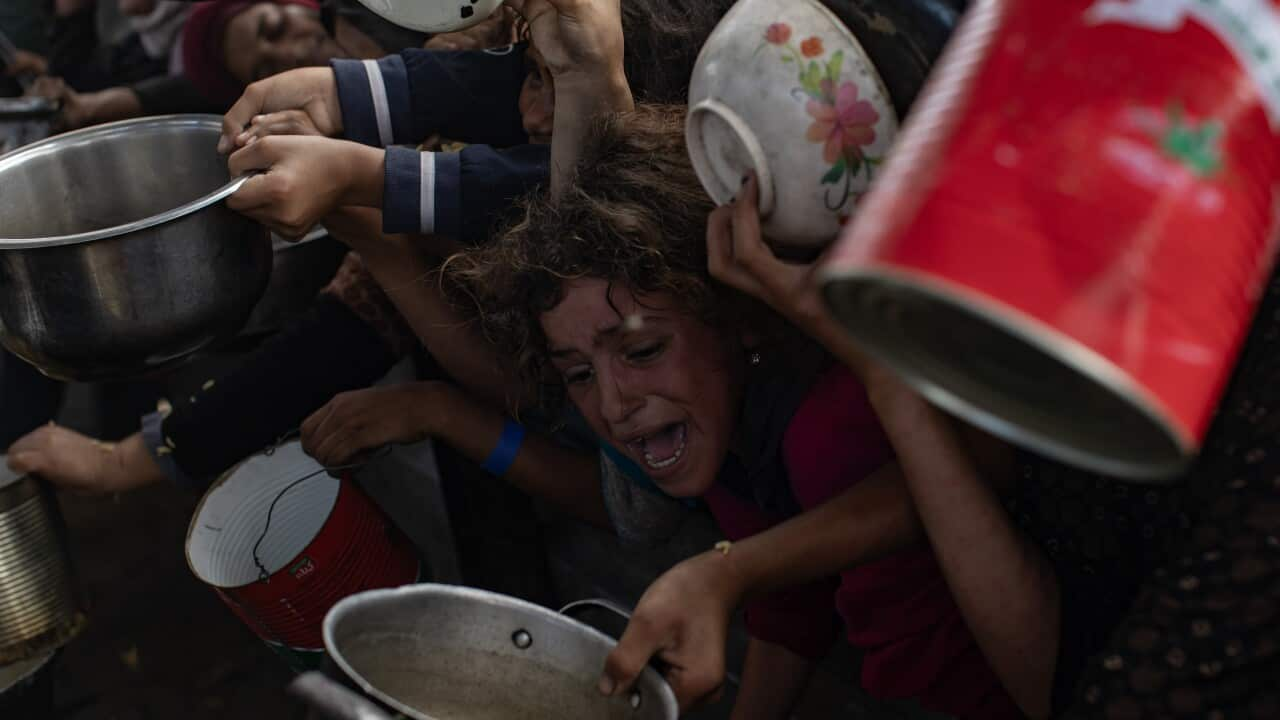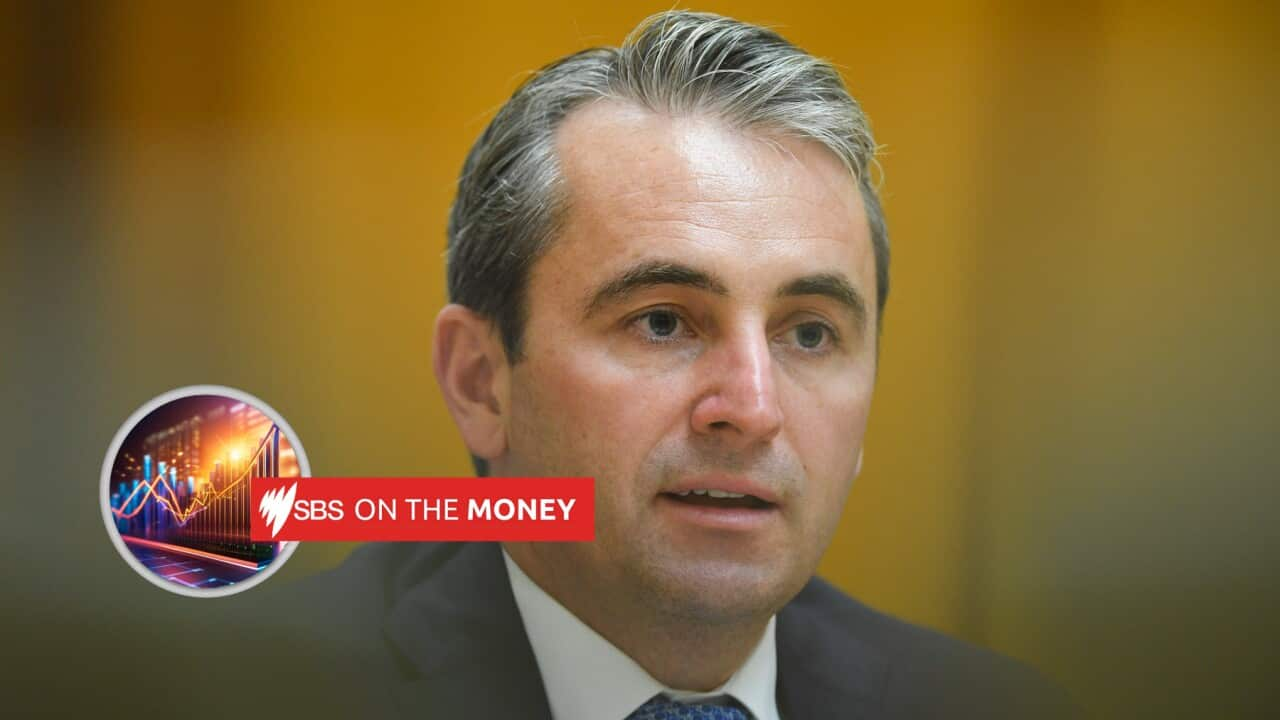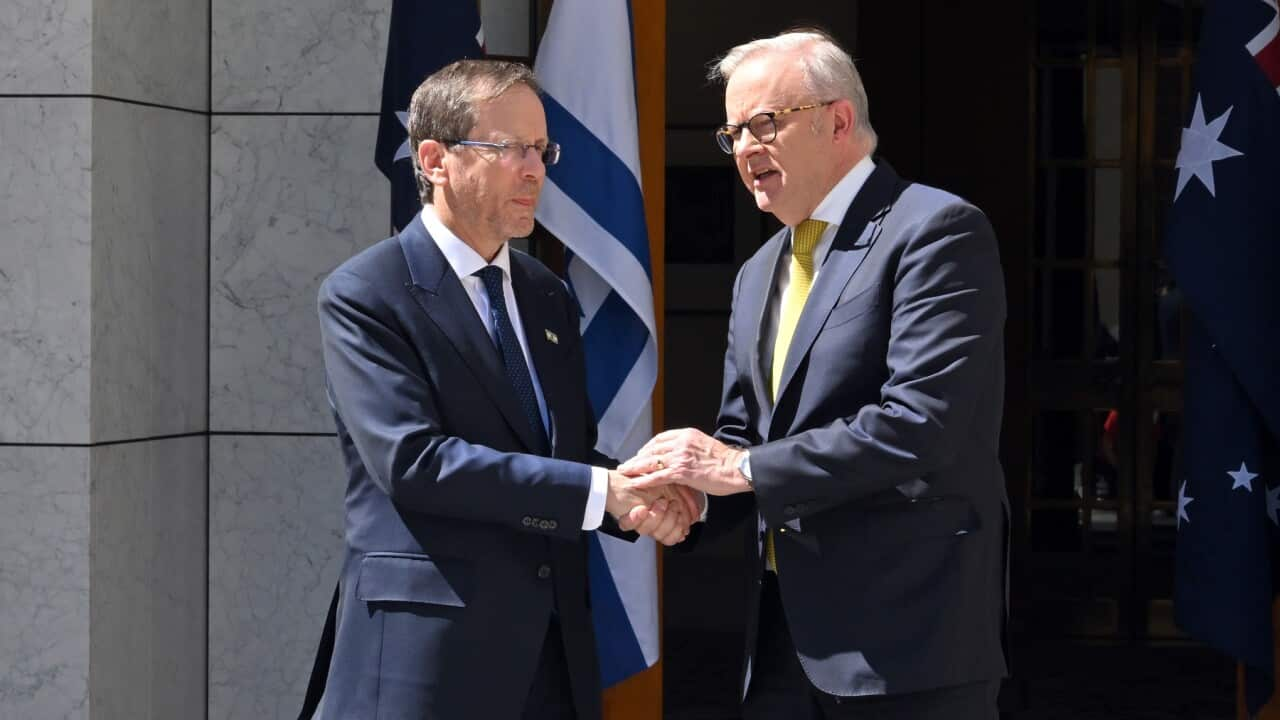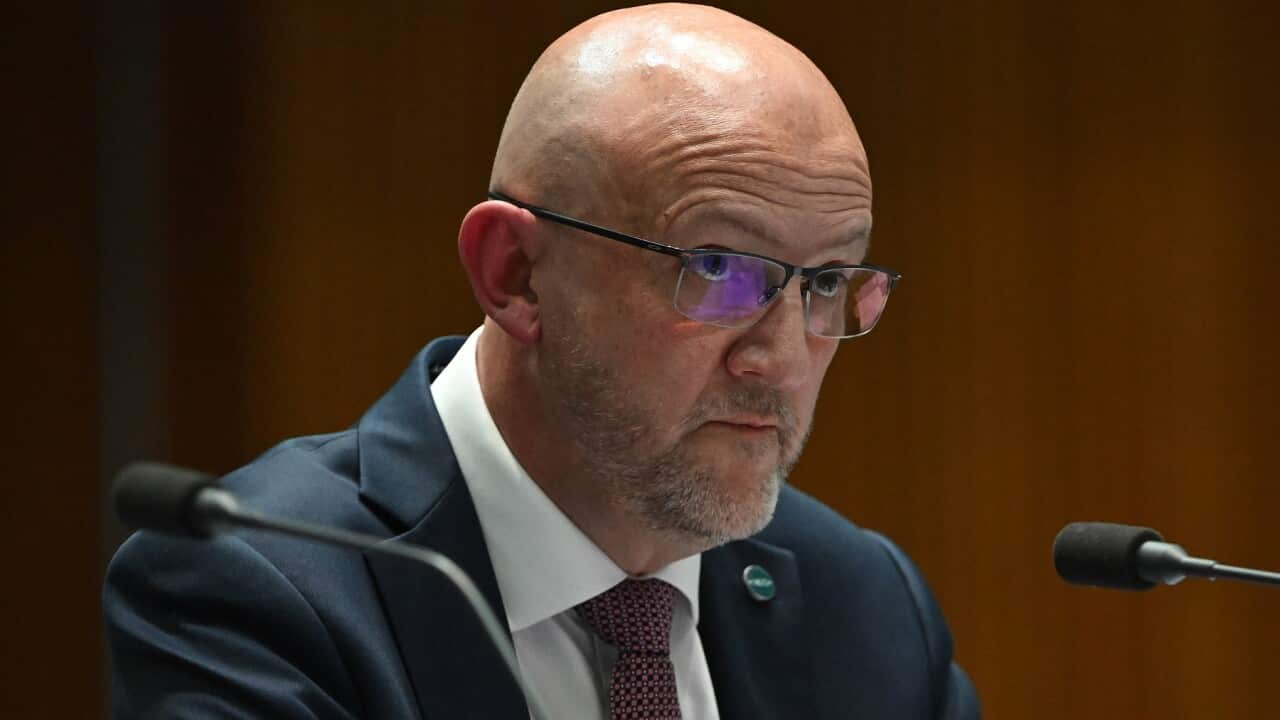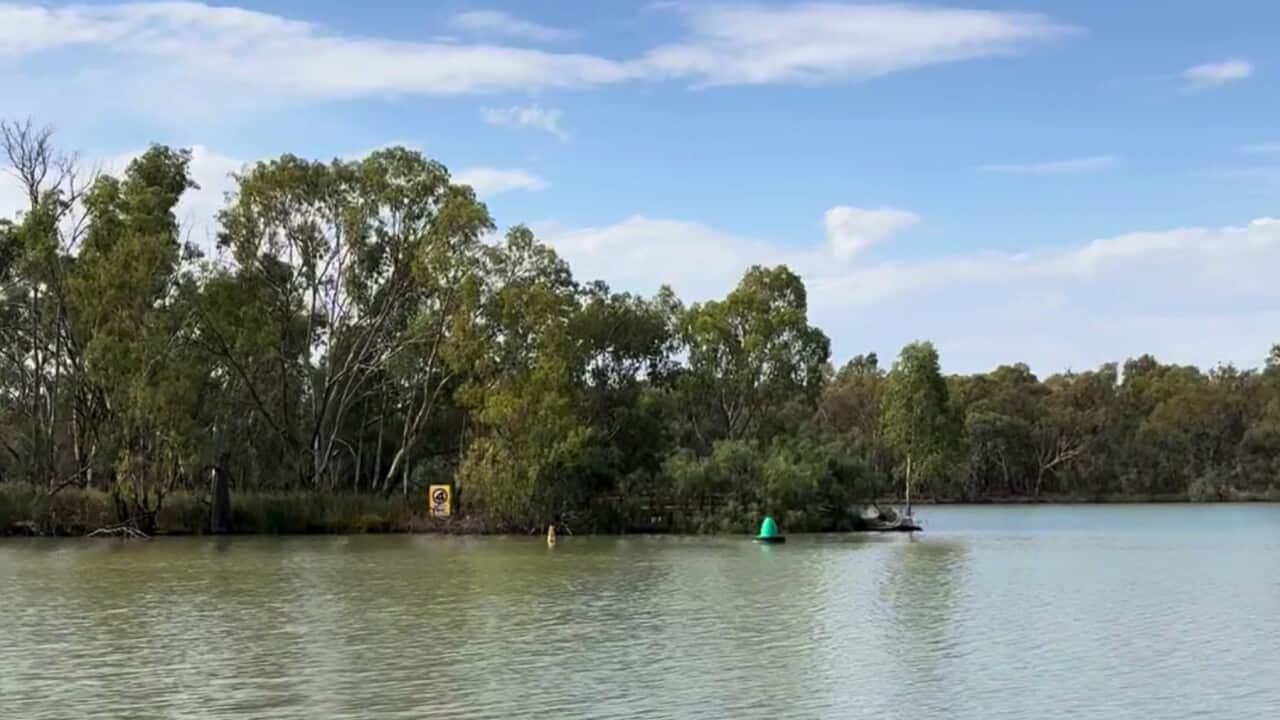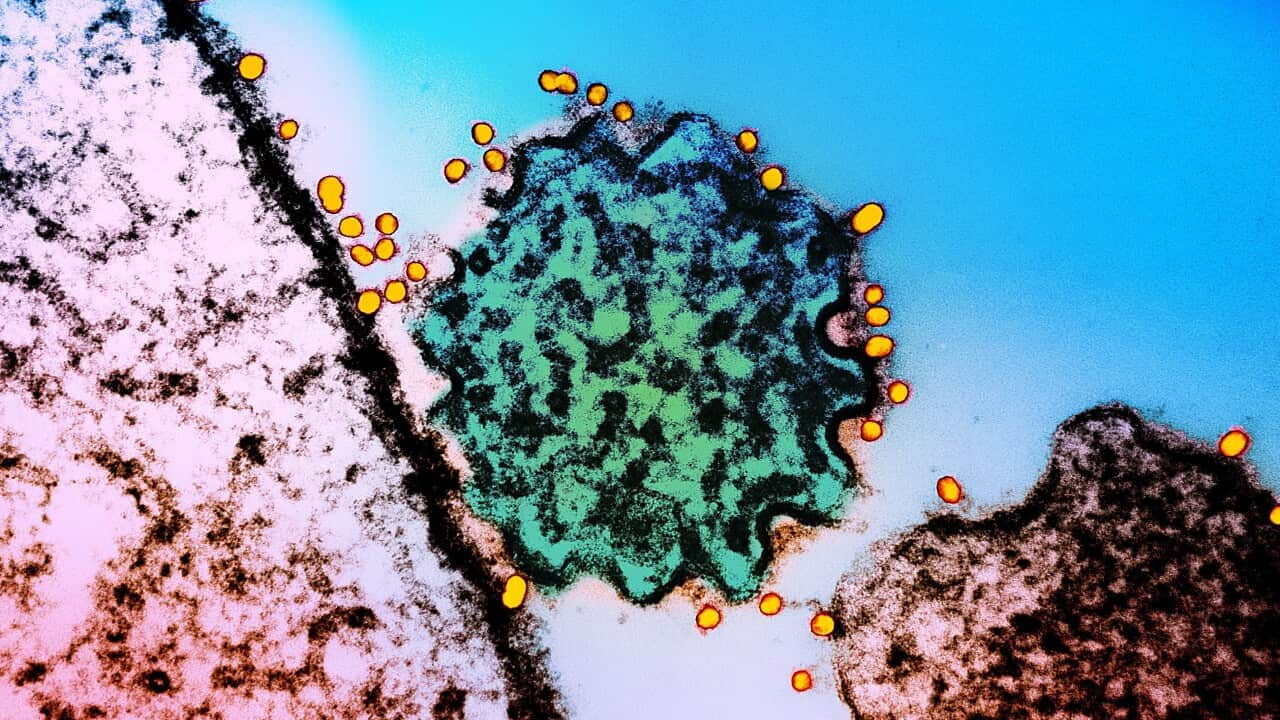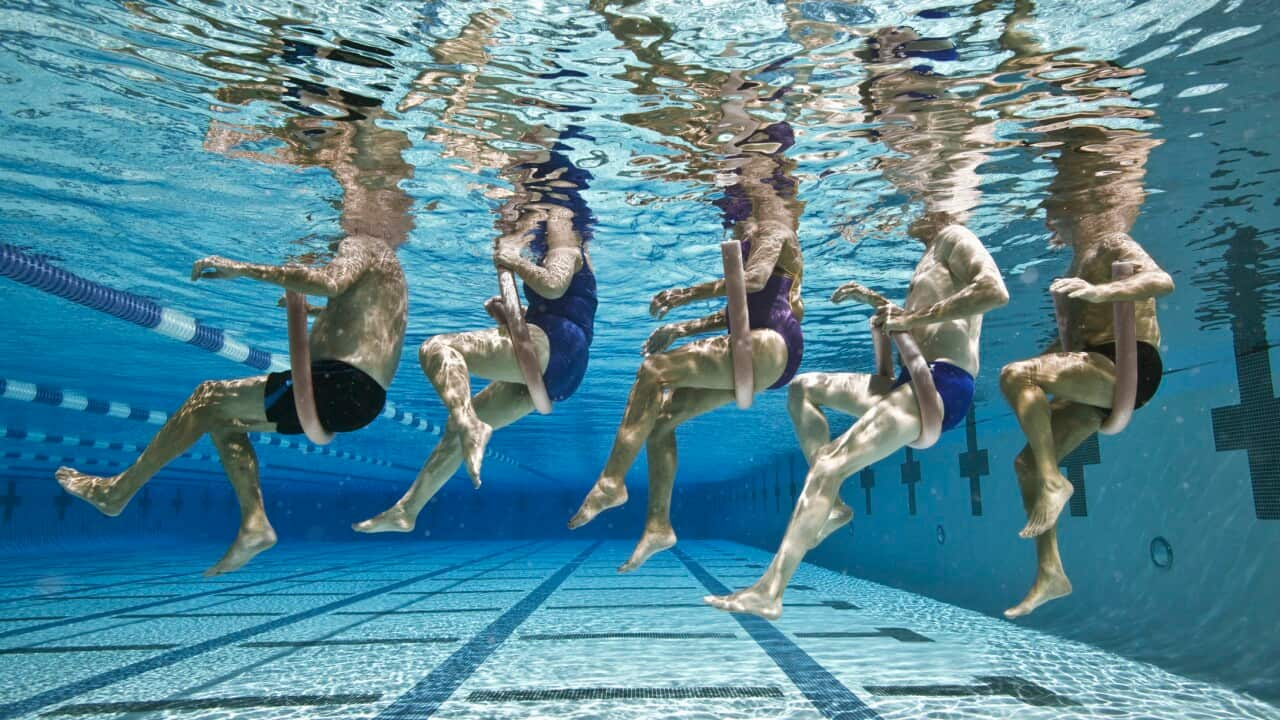Listen to Australian and world news, and follow trending topics with SBS News Podcasts.
TRANSCRIPT:
"As of the 13th of July, we have recorded 875 people killed in Gaza while trying to get food."
That's Thameen Al-Kheetan, a spokesman for the U-N High Commissioner for Human Rights, giving an update on the aid situation in Gaza.
He says most were killed around US-Israeli backed aid points.
"Six hundred and seventy four of them were killed in the vicinity of GHF (Gaza Humanitarian Foundation) sites. Now, the data we have is based on our own information-gathering through various reliable sources, including medical, human rights, and humanitarian organisations. It is still, of course, being verified in accordance with the strict methodology of the UN Human Rights Office, so the health authorities, first of all, for these figures, the health authorities in Gaza are not the only source of our information."
The G-H-F, or Gaza Humanitarian Foundation, has not commented on the latest U-N figures but has previously denied killings at their distribution sites.
Their system of aid distribution, which bypasses a previous U-N-led system, began distributing aid in late May and has been described by the U-N as 'inherently unsafe'.
It uses private U-S security and logistics companies to get supplies into Gaza.
Juliet Touma is the Director of Communications at the U-N Palestinian refugee agency, and says this system is taking too many lives.
"This functioning system (aid handed out by UN) was replaced with one that takes more lives than it saves. While there is a lot of focus out there, you might see on social media and in the media on food being distributed, the people of Gaza need more than just food. Above all, they need safety, but no place is safe in Gaza and no-one has been spared."
New figures released by the U-N Office for the Coordination of Human Rights [[OCHA]] reveal that in Gaza, ten children lose one or more of their legs in Israeli attacks each day.
Over 134,000 people, including 40,000 children, have been injured by Israeli attacks on Gaza since 2023, and an estimated 25 per cent of those have disabilities requiring acute and ongoing rehabilitation.
The U-N Agency for Palestinian refugees says one in ten children screened in Gaza since 2024 was malnourished, numbers Juliet Touma says will rise unless aid is delivered.
"As of this morning, UNRWA ran out of nearly 60 per cent of essential medicines. As an example, we no longer have medicines to treat patients with hypertension and the agency's clinics ran out of antibiotics for adults. As malnutrition among children spreads across the war-torn enclave, UNRWA has over 6,000 trucks of food, hygiene supplies, medicine, medical supplies outside of Gaza. They are all waiting to go in."
Meanwhile, starving children are being treated at Nasser Hospital in Khan Younis.
Doctors at the hospital's paediatric unit say between 6 and 10 cases of malnourished children are diagnosed daily.
Esraa Abu Halib is the mother of 5-month-old Zeinab, who is emaciated.
She says since she arrived, she has seen three other malnourished children die in the hospital.
"There is no milk that responds to her. I mean there is no suitable milk that matches the baby’s body. We tried several types of milk for her. Once the milk carton is finished, you need the same type of milk that she took before. Where do we get it from? The crossings are closed. The whole world is closed in our faces. Until when do we have to stay like this? I mean, do we wait until the baby dies?"
In Europe, E-U Foreign Policy chief Kaja Kallas has said the bloc will consider action against Israel if the situation in Gaza does not improve.
Foreign ministers from the E-U have been meeting in Brussels following a deal largely forged by Ms Kallas and Israeli Foreign Minister Gideon Saar.
Under the agreement, the E-U has sought more regular updates, as well as more concrete action from Israel on delivering humanitarian aid.
Ms Kallas says what Israel is doing now is not enough.
"I also presented ministers an inventory of different measures that could be taken in relation to the review done in June. So, we had a discussion on this, and these are choices that the member states have to make. And we will keep these options on the table and stand ready to act if Israel does not live up to its pledges. The aim is not to punish Israel, the aim is to really improve the situation in Gaza."
The proposed measures could include suspending the entire EU-Israel Association Agreement, curbing trade ties, sanctioning Israeli ministers, imposing an arms embargo, or halting visa-free travel.
European nations like Ireland, the Netherlands and Spain have increasingly called for the EU's ties with Israel to be reassessed.
Spanish Foreign Minister Jose Manuel Albares Bueno says there must be clear information on how the proposed measures can be implemented.
"Anything that will allow foodstuffs, medicine, fuel to enter Gaza will be welcome from us, but I want to know better the details about exactly what this agreement is about and also the mechanism of follow-up that the European Union will have to make sure that we will be able to check the implementation. It's very clear that this agreement is not the end. We have to stop the war, and we have to put in place a Palestinian state. And definitely I will advocate, we have been doing it for a long time, to take further measures to stop the war, to uphold international law, to defend human rights."
Meanwhile, an ultra-Orthodox political party in Israel, United Torah Judaism, has announced it will be quitting Prime Minister Benjamin Netanyahu's ruling coalition.
After a long-running dispute over the failure to exempt yeshiva students from military service, six of the remaining seven party members wrote letters of resignation, while the chairman quit a month ago.
This leaves Mr Netanyahu with a very slim majority of 61 seats in the 120 seat Knesset, making him more susceptible to pressure from other factions - complicating his ability to govern and negotiate a ceasefire agreement with Hamas in Gaza.
Knesset Foreign Affairs and Defence Committee Chairman Yuli Edelstein has urged the party members to change their minds.
"From here, I appeal to the members of Knesset from the ultra-Orthodox parties, this is not the time to dissolve the government. The future of the country is not tied to a political game at a time when the security and political challenges before us are more numerous and existential than ever."
The Knesset also held a vote to expel prominent Arab-Israeli politician Ayman Odeh from parliament, but the measure failed to pass the 90 vote threshold.
The attempt to remove him was related to a social media post in January, in which he welcomed both the release of Israeli and Palestinian detainees under a ceasefire deal.
Rival politicians in the Knesset then accused him of supporting terrorism, which he denies.
Iddo Elam was among a small group of protesters outside the Knesset ahead of the vote.
"It's very important for me that both I and the Palestinians living in my country have the same rights, equality and democracy. Ayman Odeh was picked as a member of Knesset democratically. I personally support him, and I will support Hadash once again in the next elections. Ayman Odeh is a close comrade of mine, and when I refused to join the army half a year ago, he personally came to my house and expressed his solidarity with me. So it's very important for me that he continues being in the Knesset, continues being a voice of peace, equality and freedom, because without Ayman Odeh and without Hadash in the Knesset, there will be only fascism, and we don't want that."
